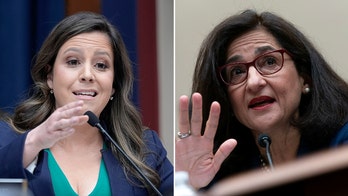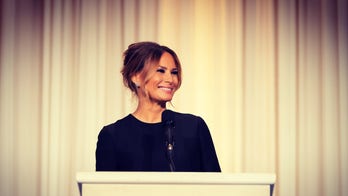Five months after a judge in Sacramento halted state financing for California's bullet train dead in its tracks, Democrats are eyeing a plan that would fund the high-speed-rail line with proceeds from the state's cap-and-trade program on carbon emissions.
As envisioned, California's $68 billion bullet-train system, the nation's first, would take passengers from Los Angeles to San Francisco at speeds of more than 200 miles an hour. The project, though, has been beset by planning delays, fluctuating cost estimates and court challenges that have threatened to kill or delay it indefinitely.
Gov. Jerry Brown has proposed using one-third of funds raised annually through cap-and-trade auctions to help pay for high-speed rail. State Senate President Pro Tem Darrell Steinberg has proposed using one-fifth of those funds. If some version of those proposals passes the Democrat-dominated legislature in coming months, the state says it will use the guaranteed funding to leverage various new sources of financing to quicken the pace of construction.
"An ongoing revenue stream is very important to us, because that would allow us to use financing, whether it is some type of revenue bond or some other financing mechanism," said Dan Richard, chairman of the California High-Speed Rail Authority. "We could build simultaneous sections, and when you are looking at a project that is of this magnitude…anything you can do to shorten that time frame or do things in parallel as opposed to in sequence is going to mean big savings."
The state's cap-and-trade program, created in 2006, requires businesses that emit more than 25,000 metric tons of carbon dioxide to purchase credits for excess pollution. Through auctions, the state has sold more than $1.5 billion worth of carbon credits, raising $663 million for the state's Greenhouse Gas Reduction Fund, set aside for projects that reduce pollution and other goals.
As the auctions grow, and more businesses are required to take part, they could raise anywhere between $12 billion and $45 billion through 2020, according to the state legislative analyst's office.
That office, however, has raised questions about using cap-and-trade dollars for the train, pointing out that during construction, the project would generate emissions rather than reduce them. Mr. Brown, a Democrat, has said using cap-and-trade dollars on the train is "very appropriate."




